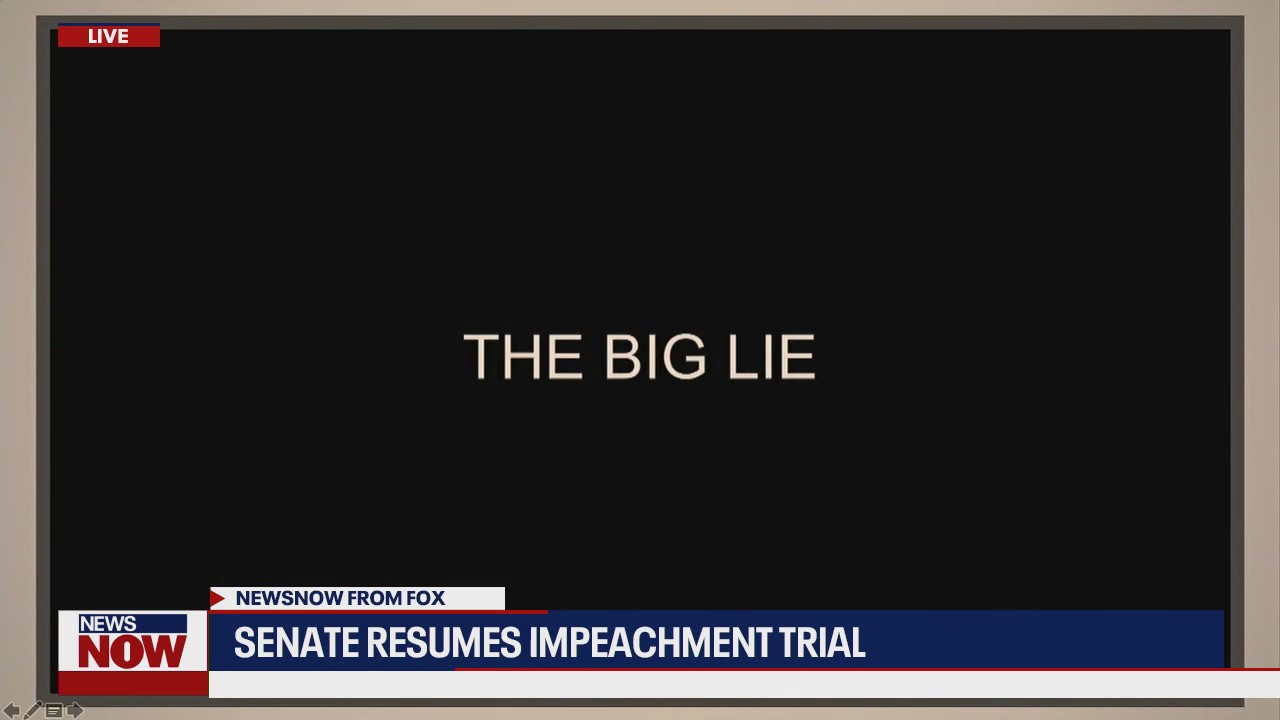Trump acquitted: With 10 votes shy of conviction, Senate acquits for incitement of insurrection
WASHINGTON - Donald Trump made history when he became the first president to be impeached twice, but he did not make history as the first president to be convicted.
The Senate voted 57-43 Saturday in a rare weekend session to acquit Trump for his alleged role in the deadly siege on the U.S. Capitol, falling short of the 67 votes required by the Constitution for a conviction.
Reaching the two-thirds threshold needed to convict never seemed likely given the Senate is evenly split 50-50 between the parties. Seven Republicans voted against party lines - the most impeachment defections ever from a president's party. Seventeen Republican votes were needed to convict.
Republicans that voted to convict Trump were Sens. Richard Burr of North Carolina, Bill Cassidy of Louisiana, Susan Collins of Maine, Lisa Murkowski of Alaska, Ben Sasse of Nebraska, Pat Toomey of Pennsylvania and Mitt Romney of Utah.
Romney’s "guilty" vote at Trump’s initial impeachment trial last February had made him the first senator to ever vote to convict a president of the same party.
Senate Republican leader Mitch McConnell voted to acquit Trump, a decision that likely influenced other Republicans weighing their votes. McConnell is the chamber’s most influential Republican and the longest-serving GOP leader ever.
The vote to acquit leaves the party locked in its struggle to define itself in the post-Trump presidency.
On Jan. 6, rioters stormed the U.S. Capitol as Congress was voting to affirm Joe Biden’s election as the 46th president. Five people died, including a rioter who was shot and a police officer.
The impeachment trial, which began on Tuesday with debate over its constitutionality since Trump was no longer in office, delivered a grim and graphic narrative of the riot and its consequences in ways that senators, most of whom fled for their own safety that day, acknowledged they are still coming to grips with.
Only by watching the graphic videos — rioters calling out menacingly for House Speaker Nancy Pelosi and Vice President Mike Pence, who was presiding over the vote tally — did senators say they began to understand just how perilously close the country came to chaos. Hundreds of rioters stormed into the building, taking over the Senate. Some engaged in hand-to-hand, bloody combat with police.
House prosecutors argued Trump's rallying cry to go to the Capitol and "fight like hell" for his presidency just as Congress was convening was part of an orchestrated pattern of violent rhetoric and false claims that unleashed the mob.
Trump's lawyers countered in a short three hours Friday that Trump's words were not intended to incite the violence and that impeachment is nothing but a "witch hunt" designed to prevent him from serving in office again.
Then on Saturday, when the proceedings were expected to come swiftly to a close, the trial was thrown into confusion when senators voted to consider hearing witnesses.
At issue was whether to subpoena Rep. Jaime Herrera Beutler of Washington state, one of 10 Republicans to vote for Trump’s impeachment in the House. She said in a statement late Friday that Trump rebuffed a plea from McCarthy to call off the rioters. Democrats consider it key corroborating evidence that confirms the president’s "willful dereliction of duty and desertion of duty as commander in chief."
Fifty-five senators voted for the motion to consider witnesses, including Susan Collins of Maine, Lisa Murkowski of Alaska, Ben Sasse of Nebraska and Mitt Romney of Utah. Once they did, Lindsey Graham of South Carolina changed his vote to join them on the 55-45 vote.
Trump lawyers opposed calling witnesses, with attorney Michael van der Veen saying it would open the door to him calling about 100 of his own. He said the depositions could be done in his law office in Philadelphia, prompting laughter from senators.
RELATED: 'I don't know why you're laughing': Trump impeachment lawyer offended by Senate chamber's laughter
The situation was resolved when Herrera Beutler’s statement on the call was read aloud into the record for senators to consider as evidence. As part of the deal, Democrats dropped their planned deposition and Republicans abandoned their threat to call their own witnesses. The case then proceeded with closing arguments.
In closing arguments, lead prosecutor Michael van der Veen fell back on the procedural argument that Republican senators have embraced in their own reasoning of the case what he said is a "phony impeachment show trial."
"Mr. Trump is innocent of the charges against him," said Michael van der Veen. "The act of incitement never happened."
After less than three hours of closing arguments, the Senate read out their vote to acquit.
Republicans were anxious to get the trial over with and discussion of Trump and the Capitol invasion behind them. Democrats, too, had a motive to move on since the Senate could not move ahead on Biden's agenda including COVID-19 relief with the impeachment trial still in session.
Biden has hardly weighed in on the proceedings and was spending the weekend with family at the presidential retreat in Camp David, Maryland.
This story was reported from Detroit. The Associated Press contributed.




